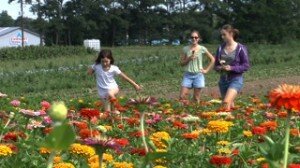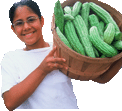Job shadowing is spending time with an experienced person in a career field you are interested in learning more about. A job shadow is generally unpaid and takes place for less than 3 days. The goal is to learn more about a person’s job by observing their daily activities and job skills. Job shadowing can take place at any age or experience level, and may involve visiting and talking to many individuals in the same career field.
Students who are interested in learning more about a farm career should shadow farmers who are managing farm businesses in areas similar to the students’ primary interests.
You may find a farmer to job shadow by talking to neighbors, friends, teachers, or your local extension agent. Local organizations that cater to farmers such as feed mills, equipment sales businesses, or farmer’s markets may also be great locations to start searching for farmers to shadow.
When introducing yourself to a farmer you would like to shadow, be sure to explain your interest in farming as a career, especially the particular aspects of farming that interest you (like vegetable growing, livestock production, cheesemaking, etc…). It may take several calls or meetings to find a farmer who has the time to help you – be patient and consider each phone call or meeting an opportunity to learn more about farming in your community and different farm career paths.
A job shadowing opportunity is a great way to develop your knowledge of a farm career.

 Information for beginning farmers.
Information for beginning farmers.
